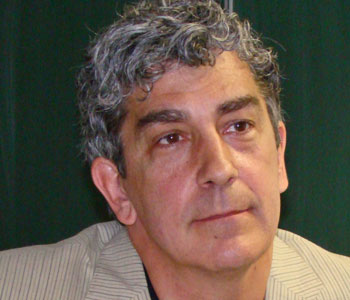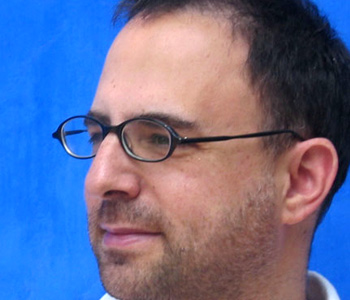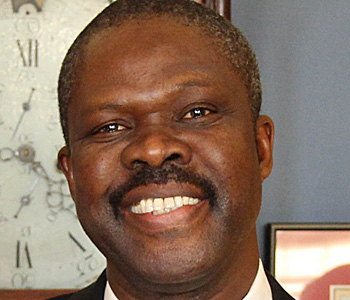Mark Vernon Awake! William Blake and the Power of Imagination Hurst 312 pages, 6 x 9 inches ISBN 978-1911723974
In a nutshell
“Awake!” takes the British poet and painter, William Blake, at his word. He is well known for some of his sayings, such as
“To see a World in a grain of sand, / And a Heaven in a wild flower”.
His poetry is anthologised, which is why pupils at school might well read,
“Tyger Tyger burning bright / In the forest of the night.”
Some of his paintings have become icons, such as “The Ancient of Days” or “Newton”; they are widely recognised and celebrated for their unique designs.
“The Ancient of Days” is widely available on the internet and can be found at the Yale Centre for British Art, explicitly not in copyright - https://collections.britishart.yale.edu/catalog/tms:3878
However, there is a profound purpose in Blake’s work, nothing short of a perceptual revival. He tells us:
“I give you the end of a golden string, / Only wind it into a ball. / It will lead you in at Heaven’s Gate, / Built in Jerusalem’s wall.”
So what is that golden string? Where is heaven’s gate? How do we track the path? That is what my book seeks to discover.
Blake was born in the 18th century and lived through what is now, in the West, called the Georgian period – the era of the American War of Independence and the French Revolution. During these years, many of the assumptions about liberty and democracy that people now take for granted developed. But these decades were also hugely turbulent. For instance, the Napoleonic Wars that followed the French Revolution led to millions killed across Europe.
Blake engaged with these events not only ethically –asking whether violence is a legitimate or even practical way of trying to achieve change and peace –but also spiritually. He felt that underneath the struggle for freedom lay an existential crisis: human beings were becoming uncoupled from the living vitality of the natural world around them and they were also losing contact with the wellspring of life itself – namely God.
In response, people were turning to moral diktats and high ideals which, whilst intending well, were turning people against one another. Law was replacing spirit, the exercise of power was eroding the place of love, trust in evidence and reason were undermining trust in the imagination.
So I want to read Blake not only as a great creative, which he is, and not only as a socially aware poet, which he is too. But as a person who strove to re-awaken the imaginations of his readers in order that a wider world, eclipsed by modern materialism, might be known again. Without that, Blake believed, human beings are living half-lives, with a denuded sense of who we are, for all the good things that modern life also brings.
The wide angle
I myself wanted to discover what Blake was driving at. I live in South London, near where he and his wife, Catherine, lived for a decade of their long marriage together. Just down the road from my house is also the site of a famous incident from Blake’s youth when he saw a tree full of angels. A pub nearby, “The Angel Oak”, still commemorates the vision.
My own history with religion, and Christianity in particular, is also in the mix. I used to be a priest in the Church of England, though left, in part, because I felt the mystical forms of Christianity were not much appreciated in the church. That can sound an odd thing to say, but the Church of England is preoccupied with other concerns, such as social justice. That is a good thing, of course, but – to quote the psychologist William James – is inclined to confuse “fruits with roots”. I wanted better to know the roots of the spiritual path, which I agree with Blake have grown shallow today.
Another way of putting it is that Blake was fascinated by inner life – not only the inner life of the human individual but the inner life of others and the rest of the world around us. He did not experience the cosmos as mindless but as replete with all manner of living intelligences with which we interact, for good and ill.
Since leaving the church, I have worked as a psychotherapist as well as a writer. I feel that one of the great challenges for psychology today is how to recover a felt connection with the wider world. I suspect that a lot of the distress that people suffer is due to feeling alienated and isolated from the surrounding vitality. I have found that Blake can help awaken that broader sense of things in me.
A close-up
One line might appear quickly to a person who picked up the book and started flicking through the pages. It’s in the introduction and is these words. “If the doors of perception were cleansed everything would appear to man as it is: infinite.”
The verse is well known partly because “The Doors” rock band, lead by Jim Morrison, was named after it. Aldous Huxley also called his examination of psychedelic experiences, “The Doors of Perception”. But the association with various kinds of exceptional ecstasy is misleading, I think.
Blake undoubtedly had what would be for many unusual experiences. I already mentioned the angels in the tree. But he wanted to understand why such perceptions were uncommon, even doubted, in the modern world and his diagnosis was to do with the modern sense of who we think we are as human beings.
In the decades before he was working, thinkers like Adam Smith and John Locke had argued that human beings are essentially autonomous agencies. For instance, the separation of bodies and minds, as if the psychological were utterly different from the physical, had become a widespread assumption. That led to the sense that human beings were confined to their bodies, as opposed to sharing in a wider pulse of life that flows through all things. Then, that wider pulse started itself to be doubted. For instance, the word “nihilism” was coined during Blake’s lifetime.
In other words, our perception of things has been closed in by doors that imprison us. Blake sought to cleanse that philosophy so that the doors could become windows once more. Then, he said, people would start to experience life as boundless – unconfined, free. We would see a world in a grain of sand and a heaven in a wild flower. Everything finite would speak of the infinite, everything temporal could carry echoes of eternity.
Lastly
With that renewed perception, Blake believed, many of the struggles and conflicts of his day and ours would be eased. People might learn to trust life again and to be less afraid. I think Blake was right. We need that deep analysis of our times to address the challenges fully.
So my hope is that people can discover a friend for life in Blake. He writes other lines that you can revisit almost every day, as a kind of practice, and feel how they work on the psyche to expand perception.
Take these:
“He who binds to himself the joy / Does the winged life destroy. / But he who kisses the joy as it flies / Lives in Eternity’s sunrise.”
How can we trust life so as to give ourselves to it, rather than working to secure our patch of land or possess more and more things? How can we look to the imagination, alongside reason and evidence, and see that it connects us with the natural world and the cosmos?
These are not trivial things to ask since they invite nothing less than a transformation of who we are. But then again, I feel we live in a period of great challenges that can welcome great responses. William Blake is a guide I want to commend wholeheartedly to others!





